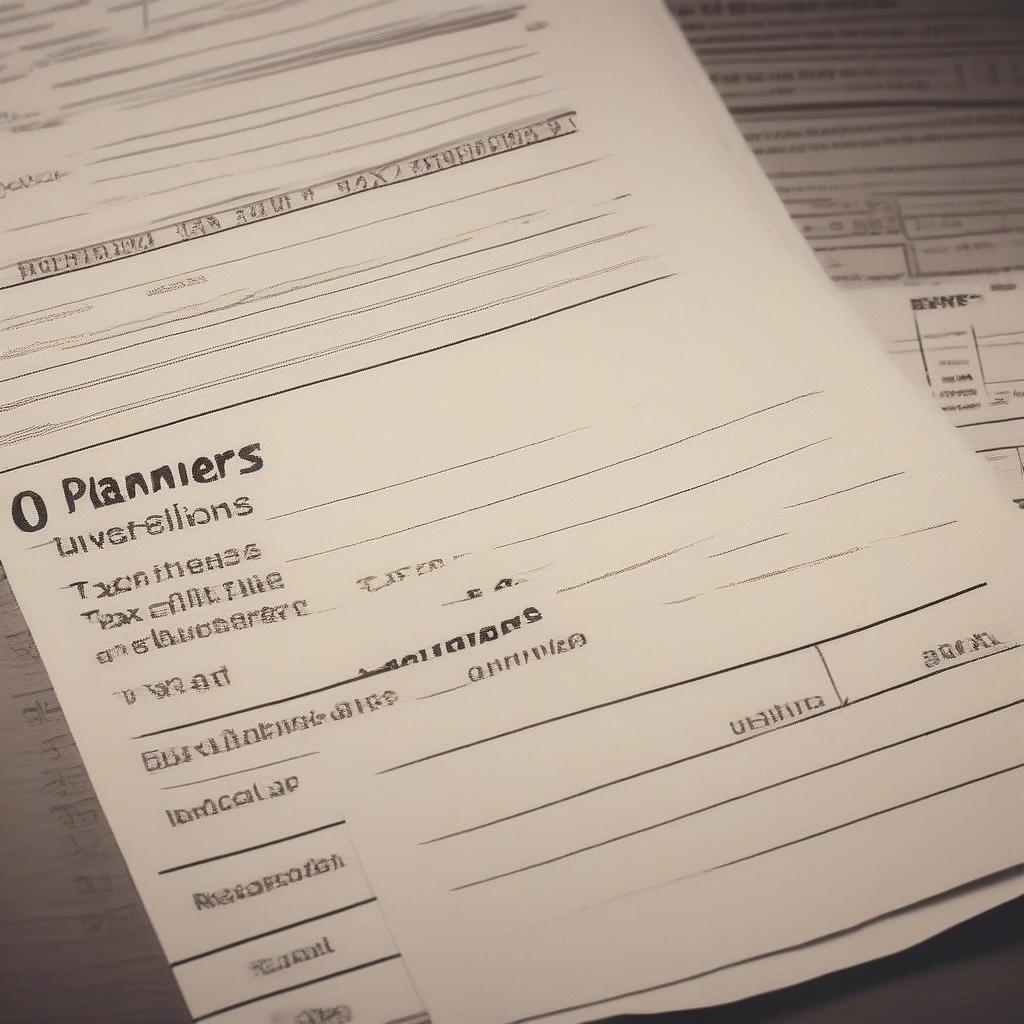
Managing Cash Flow in an Event Planning Business: Your Guide to Financial Success
Running an event planning business is exhilarating! You get to create unforgettable experiences for your clients. But behind the glitz and glamour lies a critical component that determines your success: cash flow. Without a handle on your finances, even the most creative event planner can find themselves in a tight spot. This guide is your comprehensive roadmap to mastering cash flow management specifically within the event planning industry, ensuring your business not only survives but thrives. Effective financial management is key.
Why Cash Flow is King in Event Planning
Imagine throwing a spectacular party but realizing afterward you can’t pay the vendors. Sounds disastrous, right? That’s exactly what happens when cash flow isn’t managed effectively. Event planning, by its nature, is often a project-based business with significant upfront costs.
The Unique Cash Flow Challenges of Event Planning
- Large Upfront Investments: Securing venues, booking entertainment, and paying deposits often require substantial outlays before you receive full payment from clients.
- Long Lead Times: Events are often planned months in advance, meaning you’re spending money long before you see any return.
- Variable Expenses: The cost of goods and services can fluctuate, making budgeting challenging. Unexpected costs also creep up.
- Client Payment Schedules: Payment terms can vary significantly, leaving you waiting for income.
- Seasonality: Depending on the types of events you plan, your income may be concentrated in certain months.
- Vendor Payment Terms: Many vendors will expect quick payment or even payment upfront.
Understanding these challenges is the first step to conquering them.
What Happens When Cash Flow Goes Wrong?
Poor cash flow management can lead to a host of problems:
- Inability to Pay Vendors: Damaged relationships and potential legal action.
- Missed Opportunities: Lack of funds to invest in marketing or take on new projects.
- Debt Accumulation: Relying on credit cards or loans to cover expenses.
- Business Closure: The ultimate nightmare.
Don’t let this happen to you! Let’s dive into how to take control of your cash flow.
Building Your Financial Foundation: Key Strategies
A solid financial foundation is crucial for any event planning business. Good financial management practices are the bedrock of that foundation. Here are some key strategies to implement:
1. Cash Flow Forecasting: Predicting the Future (Financially)
What it is: Cash flow forecasting is predicting how much money will come in and go out of your business over a specific period. This allows you to anticipate potential shortfalls and take corrective action.
Why it’s important: By anticipating highs and lows, you can make informed decisions about spending, investments, and borrowing.
How to do it:
- Gather Data: Review past income statements, expense reports, and bank statements.
- Estimate Income: Project revenue based on confirmed events, leads in the pipeline, and historical trends. Consider seasonality.
- Estimate Expenses: List all fixed expenses (rent, salaries, insurance) and variable expenses (vendor costs, marketing). Be realistic, and pad the budget for unforeseen expenses.
- Create a Spreadsheet: Use a spreadsheet program (Excel, Google Sheets) to track your projections.
- Update Regularly: Review and update your forecast at least monthly, or even weekly.
Example: Let’s say you’re planning a large wedding in three months. You need to forecast your cash flow to ensure you have enough funds to cover deposits for the venue, caterer, photographer, and other vendors. By creating a forecast, you can identify a potential shortfall and adjust your payment terms with the client or seek a short-term loan.
2. Smart Pricing Strategies for Positive Cash Flow
Your pricing is a crucial lever in cash flow management. You need to find the sweet spot between attracting clients and ensuring profitability.
Consider these factors when setting your prices:
- Cost of Goods Sold (COGS): Direct costs associated with each event (venue rental, catering, decorations).
- Operating Expenses: Fixed and variable costs of running your business (rent, salaries, marketing).
- Desired Profit Margin: The percentage of revenue you want to keep as profit.
- Market Rates: Research what your competitors are charging.
- Value Proposition: What makes your services unique and worth a premium?
- Markup vs. Margin: Understand the difference. Markup is the percentage increase over cost; margin is the percentage of revenue that is profit.
Pricing Models:
- Cost-Plus Pricing: Calculate your total costs and add a markup percentage.
- Value-Based Pricing: Price your services based on the perceived value to the client.
- Competitive Pricing: Match or slightly undercut your competitors’ prices.
- Hourly Rate: Charge an hourly rate for your time.
- Flat Fee: Charge a fixed fee for a specific event package.
Tips for Optimizing Pricing:
- Bundle Services: Offer packages that include multiple services at a discounted rate.
- Upsell and Add-ons: Offer premium upgrades and add-ons to increase revenue.
- Negotiate with Vendors: Secure better deals with your suppliers to reduce costs.
- Regularly Review and Adjust: Periodically review your pricing to ensure it reflects market conditions and your business goals.
3. Managing Client Payments: Get Paid on Time
Late payments from clients can wreak havoc on your cash flow. Implement strategies to ensure timely payments:
- Clear Payment Terms: Outline your payment schedule, accepted payment methods, and late payment fees in your contract.
- Staggered Payments: Break down the total cost into multiple payments (e.g., initial deposit, milestone payments, final payment).
- Invoicing System: Use professional invoicing software to send timely and accurate invoices.
- Payment Reminders: Send friendly reminders before payment due dates.
- Accept Multiple Payment Methods: Offer various payment options (credit cards, bank transfers, online payment platforms) to make it easy for clients to pay.
- Late Payment Fees: Enforce late payment fees to discourage delays.
- Follow Up: Don’t be afraid to follow up on overdue invoices.
Example Payment Schedule:
- 25% Deposit: Upon signing the contract.
- 25% Milestone Payment: 60 days before the event.
- 25% Milestone Payment: 30 days before the event.
- 25% Final Payment: Within 7 days of the event.
4. Vendor Management: Negotiate Like a Pro
Your relationships with vendors can significantly impact your cash flow.
Strategies for effective vendor management:
- Negotiate Payment Terms: Aim for longer payment terms (e.g., Net 30 or Net 60) to give yourself more time to collect payment from clients before you have to pay vendors.
- Bulk Discounts: If possible, negotiate discounts for bulk purchases or long-term contracts.
- Build Strong Relationships: Cultivate good relationships with your vendors to foster trust and loyalty. This can lead to better pricing and more flexible payment terms.
- Shop Around: Don’t settle for the first vendor you find. Get quotes from multiple vendors to ensure you’re getting the best price.
- Payment Plans: Explore if vendors are amenable to a payment plan instead of a single payment.
- Careful Vetting: Ensure vendors are reliable and have good track records.
5. Expense Management: Cutting Costs Without Cutting Corners
Controlling your expenses is just as important as increasing your revenue.
Tips for effective expense management:
- Track All Expenses: Use accounting software to track all income and expenses.
- Create a Budget: Develop a detailed budget and stick to it.
- Identify Areas to Cut Costs: Look for areas where you can reduce spending without compromising quality.
- Embrace Technology: Use technology to automate tasks and reduce administrative costs.
- Go Green: Reduce your environmental impact and save money on utilities.
- Negotiate with Suppliers: Always negotiate prices with your suppliers.
- Outsource Strategically: Consider outsourcing non-core functions to reduce overhead costs.
- Rent Don’t Buy: Consider renting event equipment instead of buying it.
- Minimize Travel Costs: Host virtual meetings when possible and consolidate travel arrangements.
6. Contingency Planning: Preparing for the Unexpected
Events can be unpredictable. Prepare for the unexpected by building a contingency fund to cover unforeseen expenses or revenue shortfalls.
Steps to create a contingency plan:
- Identify Potential Risks: List all potential risks that could impact your cash flow (e.g., weather-related cancellations, vendor issues, economic downturns).
- Estimate Costs: Estimate the potential financial impact of each risk.
- Set Aside Funds: Allocate a percentage of your revenue to a contingency fund. A good starting point is 5-10%.
- Insurance: Obtain appropriate insurance coverage to protect your business from liability and losses.
- Emergency Credit Line: Arrange a line of credit with your bank to provide access to funds in case of emergencies.
Essential Tools for Managing Cash Flow
Technology can be your best friend when it comes to managing cash flow. Here are some essential tools to consider:
- Accounting Software: (QuickBooks, Xero, FreshBooks) – Track income, expenses, and generate financial reports.
- Invoicing Software: (Zoho Invoice, Wave) – Create and send professional invoices, track payments, and automate reminders.
- Budgeting Software: (YNAB, Mint) – Create and manage budgets, track spending, and set financial goals.
- Cash Flow Forecasting Software: (Float, Pulse) – Predict future cash flow based on your historical data and projections.
- CRM Software: (HubSpot, Salesforce) – Manage client relationships and track sales opportunities.
- Project Management Software: (Asana, Trello) – Manage event planning tasks and track project budgets.
Case Studies: Learning from Real-World Examples
Let’s look at some real-world examples to illustrate the importance of cash flow management:
Case Study 1: The Wedding Planner Who Didn’t Plan Ahead
A wedding planner consistently booked high-end weddings but struggled to pay vendors on time. She failed to forecast her cash flow accurately and often underestimated expenses. As a result, she was constantly scrambling to find funds, damaging her reputation with vendors and clients. Eventually, the planner had to close her business due to financial instability.
Lesson Learned: Accurate cash flow forecasting and meticulous expense tracking are essential for survival.
Case Study 2: The Corporate Event Planner Who Negotiated Smartly
A corporate event planner successfully managed cash flow by negotiating favorable payment terms with vendors. She secured Net 60 payment terms with her key suppliers, giving her ample time to collect payment from clients before having to pay her vendors. She also offered early payment discounts to clients to incentivize prompt payments. As a result, she maintained a healthy cash flow and grew her business steadily.
Lesson Learned: Negotiating smart payment terms with vendors and clients can significantly improve cash flow.
Case Study 3: The Party Planner that Managed Expenses like a Boss
A party planner carefully controlled her expenses by using technology to automate tasks and reduce administrative costs. She also negotiated discounts with suppliers and regularly reviewed her budget to identify areas where she could cut costs. By diligently managing her expenses, she was able to maintain a healthy profit margin and generate positive cash flow, even during slow periods.
Lesson Learned: Controlling expenses is just as important as increasing revenue.
Learn Business: Your Partner in Financial Success
At Learn Business, we understand the unique challenges faced by event planning businesses. We offer a range of resources and services to help you master cash flow management and achieve financial success. We help businesses by offering guidance and templates tailored to the businesses.
How Learn Business Can Help Your Event Planning Business
- Financial Templates: We provide customizable templates for cash flow forecasting, budgeting, and expense tracking.
- Expert Guidance: Our team of experienced financial advisors can provide personalized guidance and support to help you optimize your cash flow management strategies.
- Business Planning Resources: We offer comprehensive resources to help you develop a solid business plan and secure funding.
- Training Programs: We provide training programs on various aspects of financial management, including cash flow management, budgeting, and pricing strategies.
- Community Support: Connect with other event planning professionals and share best practices.
Conclusion: Mastering Cash Flow for a Thriving Event Planning Business
Cash flow is the lifeblood of your event planning business. By implementing the strategies outlined in this guide, you can take control of your finances, avoid common pitfalls, and build a thriving business that creates unforgettable experiences for your clients. Remember, effective financial management isn’t just about making money; it’s about building a sustainable and profitable business that you can be proud of. So, start planning, start budgeting, and start managing your cash flow like a pro! It’s your ticket to success in the exciting world of event planning.



Leave a Reply